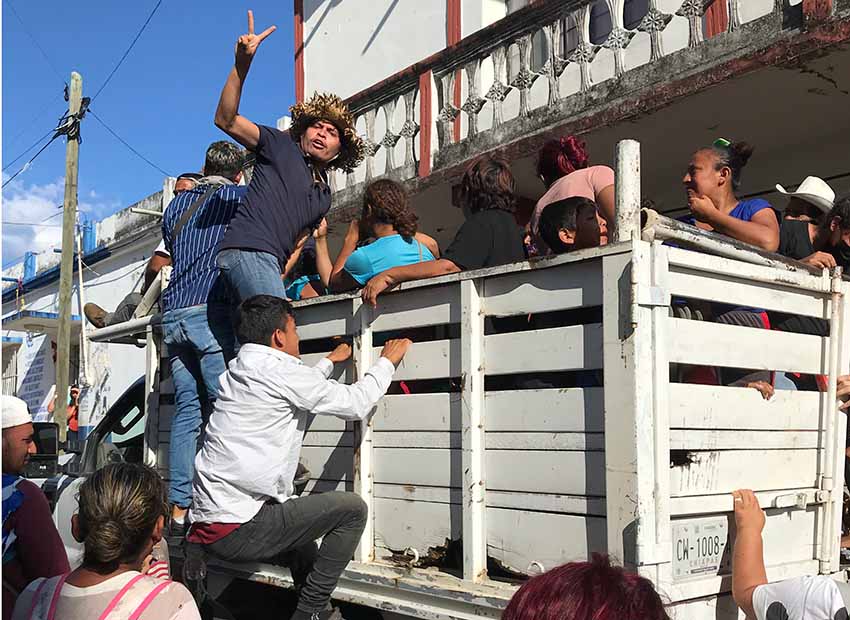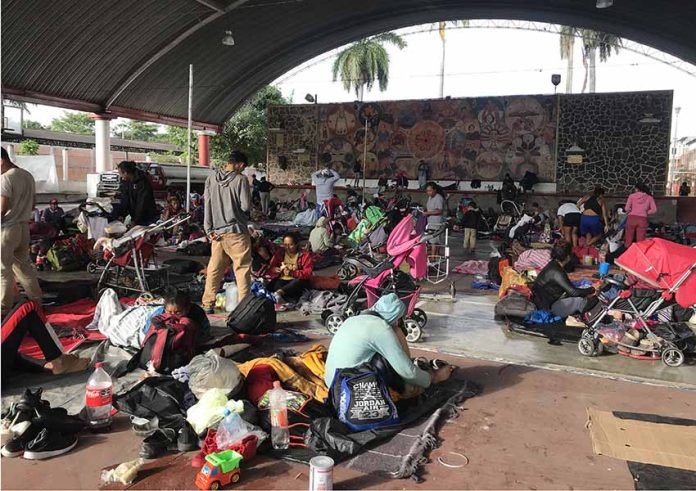The migrant caravan that left Tapachula, Chiapas, on October 23 is currently moving sluggishly through the Isthmus of Tehuantepec, Oaxaca, its slow pace due to security forces periodically closing the highway to prevent weary migrants from hitching a ride on passing cargo and pickup trucks.
The largely Central American convoy — which numbered as many as 3,000 members at its height and included pregnant women, children and disabled people — has shrunk to about 1,500, due in part to 800 humanitarian visas provided by immigration authorities.
Security forces implemented the highway blockade strategy on Sunday but after a couple of hours partially reopened the road to trucks carrying cargo, the newspaper Milenio reported. Despite the lack of empty trailers, about 100 migrants managed to hitch a ride by jumping onto the side of the trucks. Some migrants said that local drivers joined a protest they staged against security forces to get them to reopen the road.
The road closure tactic has been used continuously since November 6, when security forces prevented the caravan from traveling to Tuxtla Gutiérrez from Arriaga, both in Chiapas. As a result, the migrants changed course for Oaxaca.
Caravan leader Irineo Mújica said on the weekend that security forces were creating a dangerous situation.

“The National Guard is continuing to stop [the vehicles]; the migrants are not blocking the traffic,” he told the newspaper Reforma. [The National Guard] are going to cause an accident. They do not care about the public … They are responsible for causing chaos, for not allowing migrants to ask for a ride … It is a decision of the federal government to destroy [the caravan] at all costs,” he said.
A fight between migrants left two people injured on Sunday, Milenio reported.
A confrontation between the National Guard and migrants occurred on Saturday at La Ventosa, Oaxaca, Reforma reported, but on a far smaller scale than the violence that occurred near Tonalá, Chiapas, on November 4.
Many migrants cited their distrust of immigration authorities as their reason for continuing in the caravan instead of attempting to acquire a visa. It is not clear where they would seek information: immigration officials do not accompany the caravan, apart from four paramedics with a National Immigration Institute (INM) aid agency called Grupo Beta. However, when asked, the paramedics emphasize their connection with Grupo Beta and don’t acknowledge their connection with the INM.
Meanwhile, some of the 800 migrants who received humanitarian visas — who are not noticeably vulnerable — told a Mexico News Daily reporter that they have already reached their destination, the United States.
Mexico apprehended more than 190,000 undocumented migrants in the first nine months of 2021, about triple the number in 2020. It deported almost 74,300 between January and September, according to federal statistics.
